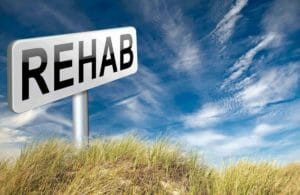The unknown is always scary, especially when it involves changing your life forever. After individuals agree to get help for their addiction that they so desperately need, the next step is to begin a treatment plan customized for their optimal recovery and overall experience. Knowing that many of those new to recovery are worrisome, anxious, and upset about what their treatment plan will look like, we make sure our clients are aware of their personal treatment process and receive transparent information about their care during the full duration of their time with us at Boardwalk Recovery Center.
For those who are considering addiction treatment, here is a general overview of what to expect when you arrive at a drug rehab program.
Understanding The Goal of Rehab
Understanding what to expect when you arrive for treatment and how the treatment process works will calm patients’ nerves and mentally prepare them for their recovery journey. First off, it’s important to understand why people should seek treatment in the first place. The goal of rehab is not only to stop using and abusing substances. In fact, the goal of a reputable treatment program, at least at our center, is to teach clients how to function in everyday life without abusing substances and help them learn healthy coping skills for stressors that might trigger future use. This can only be successful if clients are completely honest with themselves and take full advantage of group therapy sessions by sharing their true thoughts, feelings, and beliefs, including those that ignited their addiction initially.
Treatment Steps and Process
 Individuals entering addiction treatment should expect to undergo the following steps upon enrollment into a drug rehabilitation program:
Individuals entering addiction treatment should expect to undergo the following steps upon enrollment into a drug rehabilitation program:
- medically-supervised detox
- admissions and intake
- counseling and therapy
- aftercare when discharged
Medically Supervised Detox
- Before patients are able to start treatment, they must be fully detoxed. Most often the detox process is medically-supervised. Detox is necessary for clients who have a physical dependence on a substance and experience withdrawal symptoms when they stop using. Withdrawal symptoms vary from substance to substance, but what they have in common is discomfort. This is why the detox process is the first thing to expect when you arrive for treatment and also serves as the initial diagnostic evaluation.
- Depending on the substance an individual is withdrawing from, staff could prescribe medication to lessen the effects and help relieve the intensity of withdrawal. These types of prescriptions also serve as a bridge in preparing clients to enter rehab because the medication helps stabilize a client’s withdrawal symptoms, helping them to be more open to psychotherapy and an active member of group sessions.
Rehab Admissions and Intake
- Once clients are detoxed, they are welcomed to our facility and complete an intake with one of our addiction treatment staff. Intakes take place on the day that the client arrives and usually last a few hours, ensuring that we have all of the background information we need to provide the best support and care possible. The psychiatrist, counselors, and therapists need to know about the individual’s drug history, mental health, and health care history in order to create a personalized treatment plan that will be successful.
- Individuals should prepare for an intake process that will include completing a pre-intake assessment with the addiction treatment staff over the phone and then providing additional information upon admission, including completing a bio-psycho-social assessment. This also allows the medical team to be fully informed about the individual needs of each new client.
Counseling and Therapy Sessions
- After their intake, clients are assigned a primary therapist with whom they will attend individual sessions in addition to group therapy sessions. The forms of therapy offered at Boardwalk Recovery range from traditional to holistic, and this is the care that will comprise the majority of an individual’s rehab experience. Clients experience weekly meditation sessions, yoga classes, and breathwork classes.
- In the traditional group setting, clients work through process groups, psychoeducation groups, and relapse prevention groups. During this stage in a client’s treatment, they are able to process any trauma and mental health issues that may have pushed them toward addiction in the first place.
Aftercare Treatment and Support Groups
- When a client reaches a successful stage in their recovery and is ready for discharge, we encourage them to maintain connections with fellow group members and attend peer groups in order to be held accountable and relate to others. This is because loneliness is one of the most common triggers for relapse, along with hunger, anger, and tiredness (i.e. HALT). While there are many more triggers that are specific to each client, maintaining relationships in recovery has a major lasting impact on an individual’s sobriety.
- At Boardwalk Recovery Center, we follow through with this aspect of aftercare via our alumni coordinator, who keeps in touch with clients who have moved on but are still actively working on their recovery. Aftercare depends on the individual’s needs, but usually consists of ongoing therapy, attending support groups, and sponsoring others in need.
If you have more questions or want to learn more about what to expect when you arrive at treatment and what the recovery process looks like our team is available to help.
Ready to Start Your Journey?
Taking the first step can feel daunting, but you won’t do it alone. At Boardwalk Recovery Center, our clinicians combine evidence-based care with holistic, community-rooted support to build a plan that fits your life. From your very first call through aftercare and alumni connection, we’ll walk with you toward the life you were meant to live. Reach out for a confidential conversation today. Life can be good again, and we’d like to show you how.
Life can be good again and we’d like to show you how.






